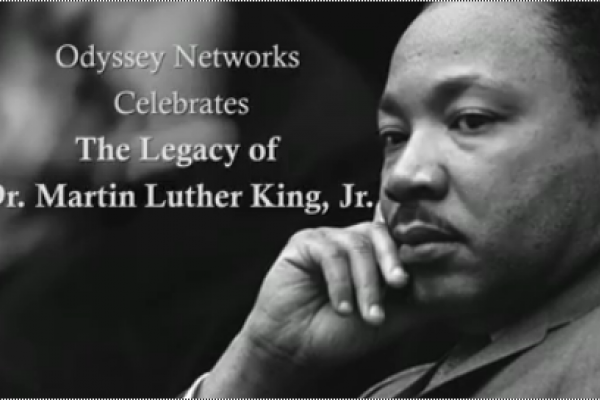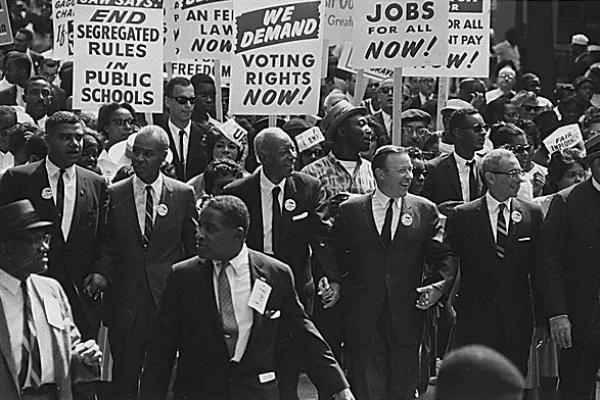The upcoming March on Washington has been on my mind as I reflect upon this week’s Gospel reading from Luke about a banquet. I personally love banquets. You get to adorn yourself with the finest trappings, dance the night away, and if the food is good, that is an added plus! But what I find most frustrating? Knowing a banquet is occurring, and I have not been invited. “Did I do something wrong? Do I not meet a certain standard? Who did get invited?” My wondering is filled with emotion.
What if America was a banquet, and at this banquet the servings were fair wages, just trials, civil rights and liberties, but offered by invitation only? According to those who “March(ed) on Washington,” this was exactly the case. Blacks deserved the same fair treatment as whites, and they were protesting to bring about the necessary changes. Perhaps if everyone took heed of Jesus’ instructions on banquet etiquette, things would be different and better.
“Blessed are the peacemakers, for they will be called the sons [and daughters] of God.” Matthew 5:9
The news cycle, the blogosphere, and social justice advocates often focus upon crisis, tragedy, and pain. Moments of freedom, of healing and hope are often drowned out by the cacophonous sounds of self-interest, fear and danger. Today I’d like to silence that cacophony and trumpet loudly about the brave and humble Antoinette Tuff, a peacemaker filled with the Spirit of God, who faced a gunman with her arsenal of love and compassion and saved a school full of children.
Antoinette Tuff’s faith and courage changed the outcome of history on Tuesday, Aug. 20. It is a day that will not live in infamy. Unlike other days that started on a similar path to violence, families did not grieve the loss of their children to the would-be mass gunman who walked into an elementary school with almost 500 rounds of ammunition. Police were scrambled to the scene, but did not have to evacuate classrooms of frightened children watching for a shooter. In fact, despite the heavily armed suspect and a heavily armed law enforcement response, not one person lost their life.
Much of Westernized Christianity’s recent decline has been blamed on the failure of churches and denominations to adapt to modern times — either becoming irrelevant or, contrarily, becoming too commercialized and “fake,” creating a superficial form of faith that drives parishioners away from institutionalized religion.
Lost in the conversation is a much deeper issue, one that revolves around losing confidence in the Bible.
For years churches have glossed over, rationalized, and provided shallow answers to thorny Biblical problems that are no longer being ignored — and it’s becoming harder to defend texts that appear contradictory and culturally irrelevant.
I will march on Saturday because I refuse to allow my two sons to be treated as statistics or a stereotypes rather than as children of God. I will march because overly aggressive policing tactics that overly rely upon racial profiling make a mockery of Dr. King’s dream that every child will be judged by the content of their character and not the color of their skin.
I will march because the recent repeal of section four of the Voting Rights Act by the Supreme Court jeopardizes the voting rights of millions of Americans across the country, particularly in southern states where new barriers to this sacred right are already being erected.
I will march because based on national statistics, my two black boys face a one in three chance of spending some time of their lives behind bars, a disturbing and destructive reality that has been made possible in part by mandatory drug sentencing laws that must be reevaluated and changed.



